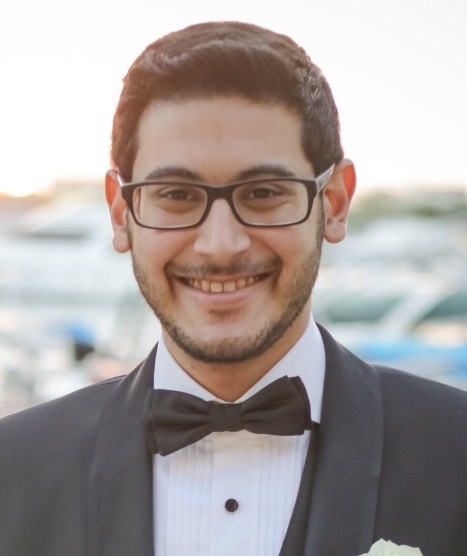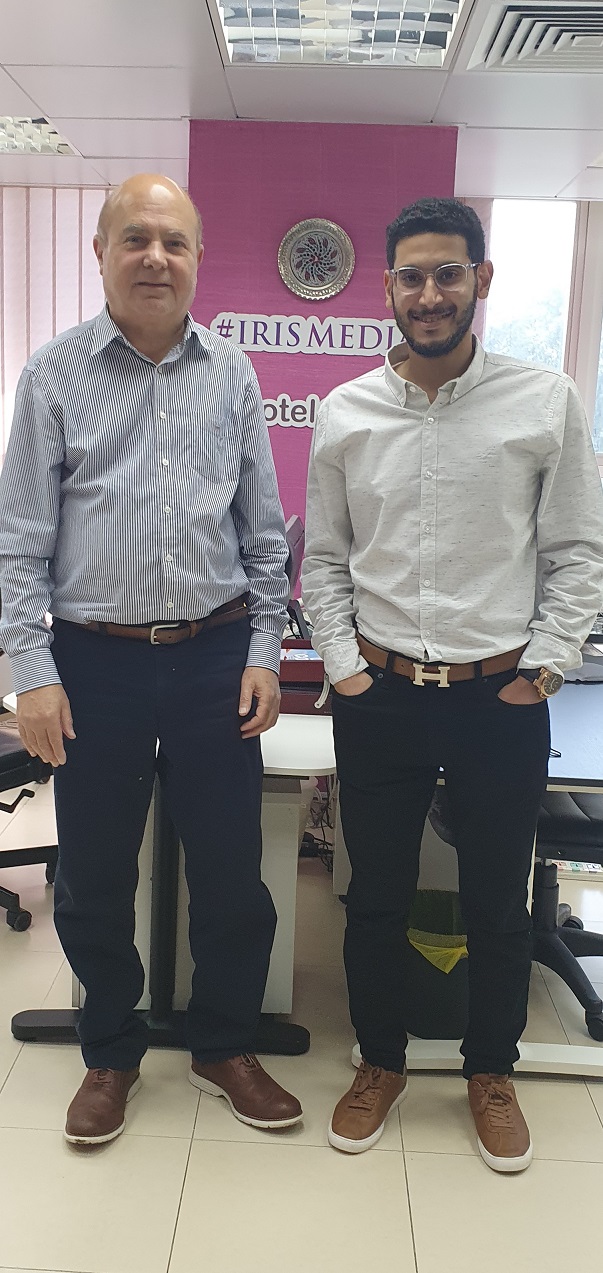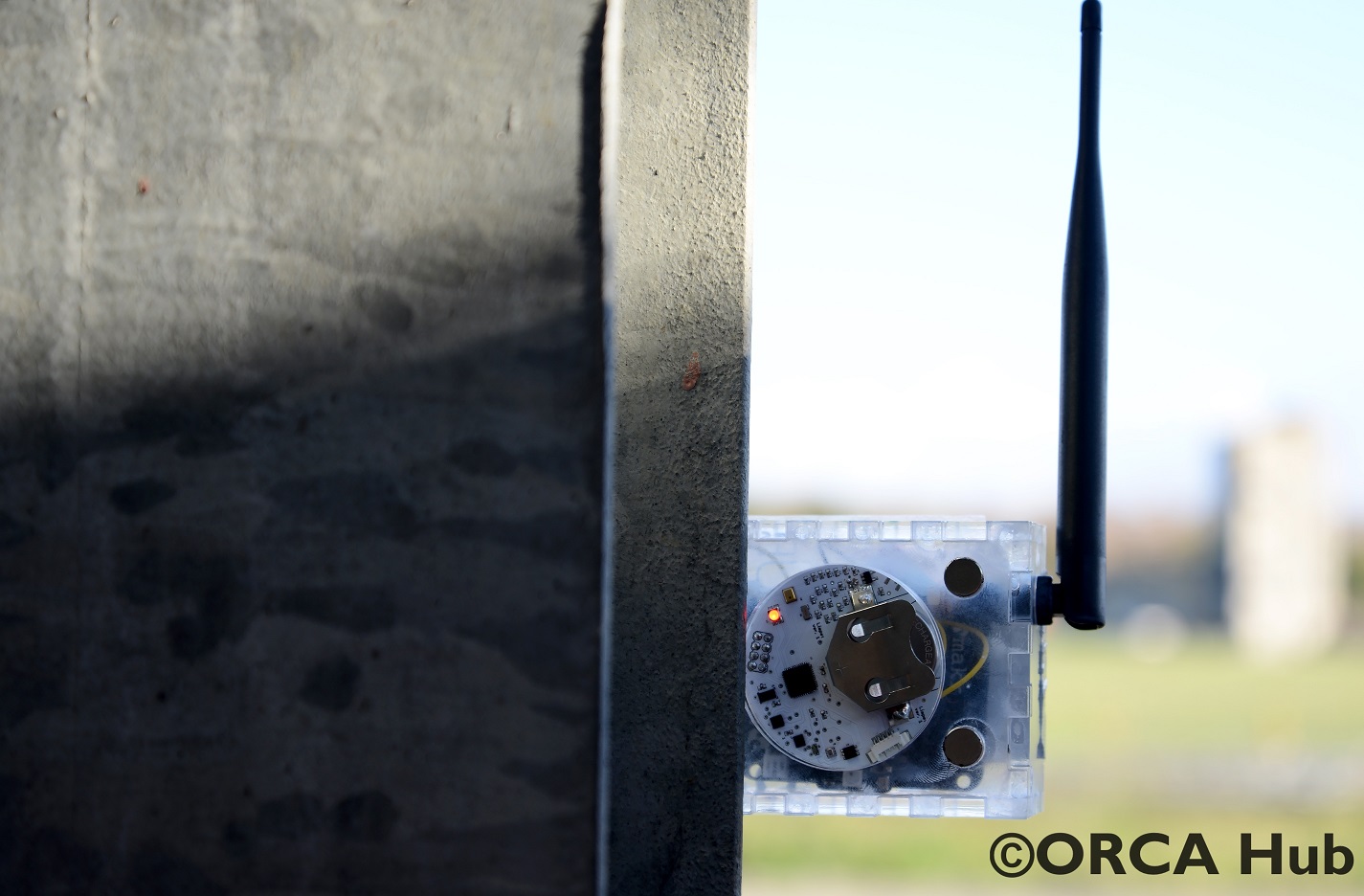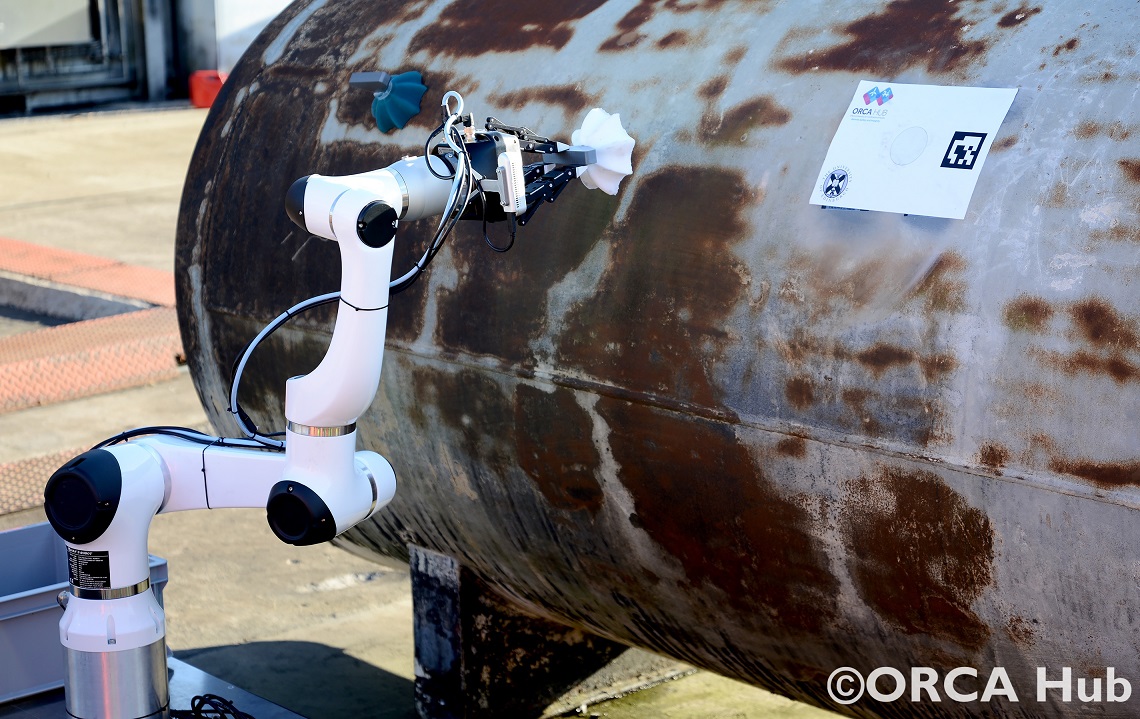In an interview with Iris Media Agency, Dr. Mohammed ElSayed, a young Egyptian researcher at the University of Edinburgh, asserted that his success in developing a new multi-sensing robot has attracted the attention of both British and European oil and gas companies.
Dr. Mohammad, who is currently spending his vacation in Abu Dhabi, mentioned that his novel invention will be be deployed in large collectives for monitoring offshore oil and gas platforms, as it designed to be low-cost and highly manufacturable.
At the age of 25, Dr. Mohammed ElSayed has successfully received a PhD in Robotics from The University of Edinburgh on this research project under the supervision of Dr. Adam Stokes, becoming one of the youngest scientists in the university.
Dr. ElSayed’s PhD research has attracted major interest from different offshore oil and gas companies, who aim to use this technology for monitoring their offshore platforms. Dr. ElSayed is currently setting up a spin-off company on this technology along with his supervisor Dr. Stokes.
Dr. ElSayed received his BSc in Electrical Engineering from The American University of Sharjah and MSc in Bioelectronics and Biosensors from The University of Edinburgh.
“Due to their hostile nature, offshore platforms present a high risk to human life and a high cost of operation” said Dr. Elsayed, adding that “robotic systems can provide the capability required to exploit the harshest of environments, whilst reducing the risk to human life and operation costs.”
Dr. ElSayed also stated, “The developed robot system provides a more cost-effective and safer method for inspection and maintenance of offshore energy platforms, which helps protect people and keep them away from such dangerous environments.”
Dr. ElSayed’s PhD research was part of the Offshore Robotics for Certification of Assets (ORCA Hub) project in the United Kingdom, which is a 3.5 year £93 million project that brings together top industrial companies (Total, Chevron, British Petroleum and many others) with academic universities (University of Edinburgh, Heriot-Watt University, University of Oxford, Imperial College London and University of Liverpool).
Dr. ElSayed asserted that the robot is capable of sensing its environment, monitoring the condition of offshore structures, adhering to surfaces of different materials, and climbing surfaces at different angles. The robotic system can be used in real-time condition monitoring for offshore platforms, and monitoring different machines, equipment and structures on the platform. “The robot can then notify people on-shore when action needs to be taken,” said Dr. ElSayed; “in this way, risk to people is reduced by keeping them on-shore and away from the offshore platform, where they can only access the offshore platform when needed.”
The developed robotic system took part in multiple field trials, use cases, and research projects. The contribution of the developed system to both industrial demonstrations and other research output shows its great impact and value. The robot was used as a part of underwater sensing network to monitor environmental conditions underwater. The robot was also used for environmental water quality monitoring, which is useful in monitoring pollution levels resulting from offshore platforms in their surrounding marine environment.
Dr. ElSayed is currently working as a Post-Doctoral Research Associate in The University of Edinburgh on the “Connect-R” project, which is a £6 million project in the United Kingdom run in collabration between industrial partners (Barrnon, RACE, Ross Robotics, Tharsus, Jigsaw Structures), and academic institutions (The University of Edinburgh and Royal Holloway University of London). The project focuses on the development of robotic systems for nuclear environments (Fukushima Daiichi, Chernobyl, Sellafield, and others).
Dr. ElSayed is designing a large scale self-building modular robotic platform that can provide access to the work-sites in nuclear environments. The robot acts as a scaffolding system, where it provides structure in unstructured environments, and allows other robotic systems to easily access work areas in these environments to carry out vital operations.
 Dr. ElSayed is acting as the Vice President of the Engineering Graduate Society at the University of Edinburgh, which is responsible for organizing events for all researchers across the School of Engineering at the university.
Dr. ElSayed is acting as the Vice President of the Engineering Graduate Society at the University of Edinburgh, which is responsible for organizing events for all researchers across the School of Engineering at the university.
For more information, please contact Dr. Mohammed ElSayed at:
m.mohammed@ed.ac.uk Or visit: https://www.mohammedsayed.com/



